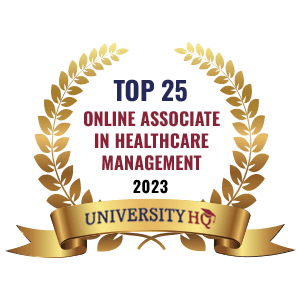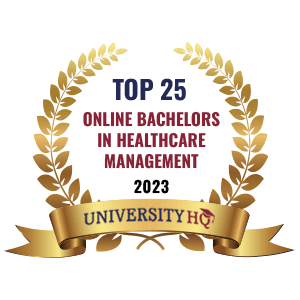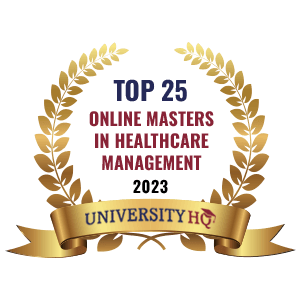What is Healthcare Management?
Many colleges and universities in New Hampshire offer degrees in healthcare management and other related subjects. Graduates typically possess the knowledge and skills necessary to develop and administer healthcare programs in a wide variety of different medical settings including hospitals, health insurance companies, and nursing homes. This is an ideal major for individuals dedicated to helping medical facilities provide high quality care to patients.
Healthcare managers are responsible for planning, directing, and coordinating the medical and health services offered by healthcare facilities. They often work for small clinics, hospitals, or physicians managing their own practices. Employment opportunities may also exist in nursing homes, residential care facilities, and outpatient care centers. Notably, job titles often differ depending on the work setting. They are also sometimes referred to as healthcare executives, nursing home administrators, clinical managers, and health information managers.
While daily tasks and expectations vary by facility, healthcare managers are often responsible for improving overall efficiency and quality of the health care services provided by their employers. This includes verifying all activities comply with various state and national laws and regulations. Depending on the situation, they may oversee just one area or be in charge of multiple departments. In all cases, these professionals are likely to spend time developing strategic departmental goals and objectives, recruiting new employees, providing developmental training, and supervising staff members. They may also facilitate patient payments, monitor available finances, and ensure operating costs remain within established limits.
Generally, healthcare managers work full-time, with hours in the evenings and over weekends sometimes required. Functioning as part of on-call emergency rotations may also be necessary.

Featured Online Programs
Online Healthcare Management Education in New Hampshire
According to the US Bureau of Labor Statistics (BLS), employment for medical and health services managers is projected to grow 28% from 2021 to 2031. This is much faster than the average for all occupations and will result in an increase of about 56,600 job openings each year.
Educational services, healthcare, and social assistance is the third largest industry in New Hampshire, accounting for $9.8 billion in revenue each year. Based on data provided by the BLS, the state employed 45,350 management professionals in May 2022. Notably, this includes occupations outside of the healthcare industry as well. The annual mean wage for these professionals in the state was $132,220. This is significantly above the reported annual mean wage of $62,550 for all occupations in New Hampshire.
Healthcare administration degree programs are available throughout the United States, with many departments offering remote learning options. While online enrollment provides great flexibility, the location of your chosen college or university matters. Those planning to seek employment in New Hampshire should strongly consider local academic institutions first. These schools will provide the most geographically relevant curriculums, which ensure graduates have the knowledge and skills employers in the state expect most. New Hampshire institutions may also provide more targeted assistance for individuals planning to seek state certifications and licensures.
Many colleges and universities in New Hampshire offer degrees in health management and other related subjects. Prospective students pursuing this area of study can generally choose from programs at the associate, bachelor’s, master’s, and doctoral levels.
It’s important to realize, however, that the type of employment available after graduation will be greatly impacted by the degree(s) obtained. While entry-level employment opportunities do exist for individuals with associate degrees, jobs of this kind can be limited. It’s far more common for professionals in this field to possess bachelor’s degrees or above. Those seeking supervisory positions, in particular, will require more education.
Online Associates (AS)

An associate healthcare administration degree program generally consist of 60 credit hours of coursework that take full-time students approximately two years to complete. As undergraduate degrees, these programs incorporate both general liberal arts and major-specific classes. Every curriculum is different, but those enrolled are likely to study various topics in communication, mathematics, and science in conjunction with healthcare technology and health and human services, medical terminology, marketing, and medical office administration for healthcare organizations. Instruction in popular technologies, data systems, and medical coding methods is also common. Students can usually expect to receive a broad introduction to the field, in addition to developing various fundamental skills necessary to work in most medical offices and other healthcare settings.
It’s also important to realize that associate degree graduates are unlikely to qualify for jobs as healthcare managers. Rather, individuals who complete these programs should be prepared to pursue entry-level employment as medical secretaries, medical assistants, and medical records technicians. Studying at this academic level can also lead to other administrative jobs at health-related facilities.
Those who are intent on becoming healthcare managers will need to pursue further education. Fortunately, associate degree graduates are often closer to obtaining traditional four-year degrees than they realize. Incoming students can often transfer the credit hours they have earned previously from other academic institutions. Many colleges and universities accept up to 60 or 90 credits from other properly accredited schools. In many cases, this means graduates require only two additional years of study before receiving more advanced degrees.
Online Bachelors (BS)

Bachelor’s degrees in healthcare management generally consist of 120 credit hours of coursework that take full-time students approximately four years to complete. Prior undergraduate credits earned due to advanced placement (AP) course examinations and/or previous degrees can lead to faster graduation timeframes.
As undergraduate degrees, these programs continue to incorporate both general liberal arts and major-specific classes. Curriculums vary, but those enrolled are likely to study various topics in communication, mathematics, and science in conjunction with healthcare law, management information systems, healthcare services, quality management, and budgeting in healthcare. It’s also common for students to receive instruction on various principles in marketing, business law, and ethics.
It's also worth noting that most colleges and universities expect students at this level to participate in residencies or internships. This allows those enrolled to work in actual healthcare facilities, at which they can develop and hone the knowledge and skills needed to succeed after graduation. These opportunities are a great way to gain real-world, hands-on experience in the field.
Graduates are typically qualified for jobs as medical office administrators, healthcare human resources managers, health information officers, and community service managers. Other positions dealing with the business side of medical facilities and organizations may also be available.
Online Masters (MS)

Master’s degrees in healthcare management or a health care administration MBA (Master of Business Administration) will generally range from 30 to 45 credit hours of coursework that take full-time students approximately two to three years to complete. At the graduate level, curriculums rarely incorporate undergraduate or general liberal arts classes anymore. Students may, however, need to prove they have the knowledge and skills necessary to study advanced topics in this field. Many colleges and universities require prior transcripts to verify these prerequisite courses have been completed.
Curriculums vary by institution, but students can usually expect to study various concepts related to management, business, accounting, and healthcare. It’s also common for those enrolled to receive instruction in human services, medical terminology, hospital organization, health information systems, health services management, human resources administration, health policy, public health, strategic planning, and health economics or healthcare finance.
As with bachelor’s degrees, colleges and universities often expect graduate students in healthcare management to complete residencies or internships. These supervised administrative experiences often take place in hospitals and/or various healthcare consulting settings. These residencies are similar to those completed at the undergraduate level, but may last longer for those who wish to be healthcare leaders. In some cases, participation can even span an entire academic year.
Graduates from these programs tend to have more job options and make more money. They often qualify for employment as medical records supervisors, hospital administrators, health information management managers, and healthcare consultants. Other mid-to-high-level occupations may also be available.
Online Doctorate (PhD)
A PhD or doctorate in healthcare management can consist of between 60 and 120 credit hours that may take full-time students up to seven years to complete. These are terminal degrees, representing the highest level of education available.
These programs tend to be academically intensive, with extensive instruction in advanced healthcare management, finance, medical law, ethics, healthcare data, and informatics. Curriculums vary, but those enrolled can generally expect to participate in traditional classroom instruction and coursework during the first couple years. As students progress through these programs, however, they often spend more time conducting independent study, research, and writing. Residencies are also common. In most cases, this work ultimately culminates in the presentation and defense of dissertations prior to graduation.
Graduates have many professional opportunities in healthcare management, research, and/or academia. Those with doctoral degrees may also qualify to lead large teams of other healthcare workers or obtain jobs as hospital CEOs.
Become a Healthcare Management in New Hampshire
The first step to becoming a healthcare manager in New Hampshire is researching the various jobs available in the field. There are numerous occupations that fall under the classification of healthcare management, each with their own unique hiring standards and expectations. Becoming familiar with the various options will make it easier to identify your ultimate career goals. Once you determine your preferred profession, take note of its recommended education level. This can help you select the most appropriate degree program, as well as useful elective courses, minor areas of study, academic concentrations, extracurricular activities, and/or internships.
It's important to realize that not all professionals in this field pursue degrees in healthcare management. Depending on your intended occupation, it may make more sense to major in health administration, nursing, or another relevant subject. In some cases, business is also a viable alternative, especially if the program offers a specialization in healthcare topics, such as in an MBA with a concentration in healthcare management.
Companies and organizations in the state are responsible for establishing their own hiring standards for healthcare management positions. In most cases, the minimum amount of education needed is a bachelor’s degree, but requirements do vary. Some facilities expect candidates to possess master’s degrees, especially when the job includes supervisory components. Those with advanced degrees who have also worked for some time in administrative or clinical roles at hospitals or other healthcare facilities are often the most desirable candidates.
Depending of your preferred profession, it may also be necessary to obtain licensure. All nursing home administrators, for example, must be licensed in the United States. Registered nurses and social workers must be licensed, as well. If you plan to pursue a job that requires licensure, it’s imperative that you research all associated standards and expectations in the state. Every state has slightly different credentialing requirements.
Professional certifications, on the other hand, are not generally required by state boards. They can, however, be extremely beneficial as you prepare for career success. Earning one or more credentials can demonstrate dedication to the field, as well as highlight proficiency and/or expertise in various specialty subjects. As a result, hiring managers tend to prefer candidates with relevant certifications.
There is no single certification recommended for all healthcare management professionals. Rather, individuals in this field can choose which credential(s) to pursue based on personal interest and their career objectives. Some of the best-regarded certifications available are offered by the Health Information Management Association and the Project Management Institute. There are many other options available, as well.
Prominent examples include the following:
- Fellow of the American College of Healthcare Executives (FACHE)
- Certified Medical Manager (CMM)
- Certified Healthcare Administrative Professionals (cHAP)
- Certified Professional in Health Care Risk Management (CPHRM)
- Certified in Healthcare Compliance (CHC)
- Certified Healthcare Financial Professional (CFHP)
- Certified Revenue Cycle Executive (CRCE)
- Registered Health Information Administrator (RHIA)
- Certified Professional in Healthcare Information and Management Systems (CPHIMS)
Additionally, many healthcare management professionals find it beneficial to seek membership with relevant organizations and associations. These groups often offer a wide variety of helpful perks including access to academic journals, continuing education opportunities, service and product discounts, and professional networking events.
Some popular organizations and associations relevant to the field include:
- American Health Information Management Association (AAHIM)
- American Association of Health Care Administrative Management (AAHAM)
- The Southern Association of Workers’ Compensation Administrators (SAWCA)
- National Association of Healthcare Access Management (NAHAM)
- American College of Health Care Administrators (ACHCA)
- American Society of Healthcare Human Resources Administrators (ASHHRA)
Potential Careers for Healthcare Management Graduates
- Assisted Living Administrator
Assisted living administrators oversee all admittance procedures and budgeting tasks for residential facilities that assist individuals who require additional support. These professionals also handle new employee onboarding and staff evaluations. According to PayScale, assisted living administrators make an average base salary of $60,308 per year. - Chief Compliance Officer
Chief compliance officers ensure their employers are meeting all necessary financial operations compliance expectations. This requires persistent research, as it is necessary to become familiar with any changes to all applicable rules, regulations, policies, and laws. They are also responsible for conducting investigations into non-compliance and offering potential solutions to prevent future failings. They may also provide insight regarding executive budget requests for new and continuing company initiatives. According to PayScale, chief compliance officers make an average base salary of $123,243 per year. - Clinical Manager
Clinical managers provide primary and ongoing care for patients in clinical and medical offices by overseeing day-to-day treatment strategies prescribed by healthcare providers. Duties vary but often include ensuring all patient care and schedule practices are organized and efficient. They may also coordinate staff member selection, training, and supervision. According to PayScale, clinical managers make an average base salary of $73,583 per year. - Health Information Manager
Health information managers ensure medical information is stored and transferred in accordance with all legal and ethical standards. In addition to establishing proper record-keeping methods for staff members to use, they also verify that workers are properly adhering to set procedures. They often create and implement new healthcare information management policies to address issues as they arise. According to PayScale, health information managers make an average base salary of $57,626 per year. - Healthcare Administrator
Healthcare administrators coordinate staff trainings and performance reviews for nurses and nursing assistants in medical facilities. They are also responsible for ensuring that all relevant accreditation standards and regulations are met. According to PayScale, healthcare administrators make an average base salary of $74,500 per year. - Healthcare Consultant
Healthcare consultants help medical facilities optimize patient care, improve cost management, and enhance overall facility efficiency. After examining current effectiveness, legal compliance, work environment, procedural flow, and financial processes, they provide valuable feedback. According to PayScale, healthcare consultants make an average base salary of $80,351 per year. - Hospice Administrator
Hospice administrators oversee facilities that offer hospice care to patients. This often entails coordinating program offerings, interacting with residents, hiring and training staff members, supervising workers, managing community relations, and keeping records. Other common responsibilities include monitoring spending, managing the budget, and securing additional funding through grant applications. According to PayScale, hospice administrators make an average base salary of $89,869 per year. - Rehabilitation Manager
Rehabilitation managers oversee and supervise the daily operations for physical, mental health, and addiction counseling and recovery facilities. In addition to coordinating the hiring and training of new staff members, they are also responsible for meeting all government regulations and guidelines. According to PayScale, rehabilitation managers make an average base salary of $88,541 per year.
Search All Programs
